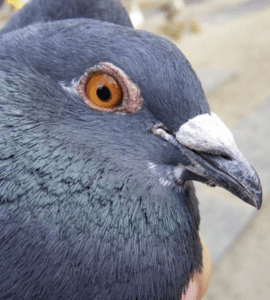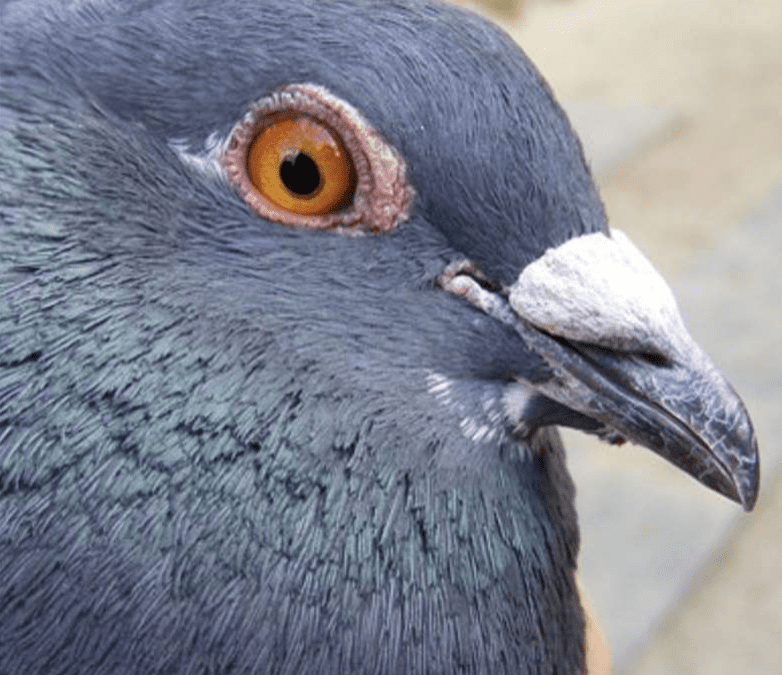
by Pigeon Patrol | Sep 18, 2023 | MBCA, pet bird, Pigeon Control, Pigeon Droppings, Pigeon Patrol's Services, Pigeon Predators
Pigeons and humans have lived together for thousands of years. Outside the cozy appearance of pigeons on large squares, pigeons can cause a lot of discomfort. There are very many different types of pigeons in the world, and only some species give people trouble.
This mainly concerns those species that live in cities and towns. They can occur in large numbers and multiply very rapidly. The city pigeons today are actually feral domestic pigeons that have been bred for centuries and originally stem from the rock dove
Pigeon droppings look awful on your roof and the uric acid (that white stuff) in the poo can damage your house. In addition, the droppings contain bacteria and fungi that can be dangerous to humans. Some examples are Histoplasmosis, Cryptococcosis and Psittacosis.
Home remedies for pest control are a great safe, affordable and eco-friendly alternative repellents to store-bought products, and below are some awesome tricks on how to get rid of pigeons on your roof. So, read on to find the best repellents for these pests!
First Off: Why Are They There?
If you suffer from pigeons on your roof, you must first ask why the birds are there. They might be there because there is a source of food and water. So to start off you must remove those. Never feed the pigeons. Make sure no one in your family or any of your neighbours feeds them. Pigeons like to eat grass seeds, berries and dog or cat food. Make sure the pigeons can not find anything to eat.
Pigeons might also like to use your roof or attic as their breeding grounds. The easiest way to discourage their nesting is to take away any access points they use. Below you will find various repellent methods to do just so.
7 Simple Tactics: How to Get Rid of Pigeons
Now its time for business. If you have pigeons on your roof, consider one of the 7 ways to get rid of them quick-smart. These methods are very effective when it comes to removing pest in your attics.
1. Use a Slinky
A nice alternative to bird spikes is using a Slinky. Attach it along the roof or balcony edge, with the circles not more than one finger length apart. Secure it tightly with tape or wire every 8 inches. The pigeons will not like it because they can’t hang out on your property. This has become a very popular and safe repellent for these unwanted birds.
2. Use A Standard Water Hose
You can also use a garden hose as a weapon in the battle against pigeons. The birds hate it if there is a strong jet of water directed onto them. You have to repeat this for a while, so they know you mean business.
3. Block Off All Entrances
This is a point we stress in our other pest removal or repellent guides: Ensure that pigeons can not get in. Once they’re in your attic, more and more pigeons will settle down on and around your house.
Make sure the attic and vents are properly screened off to keep birds and other animals from entering. Fill large openings and windows with heavy curtains or plastic strips to make it difficult to enter. If they can come in, make sure that the birds can not sit anywhere.
Close off corners where birds like to build nests with sturdy cloth and plaster. In large open areas such as barns and attics, you can close the spots above the rafters with oversized pigeon nets.
4. Mirrors and Noise
Use reflective objects. It is worth trying to use reflective tape on your roof edge, or hanging objects that make noise or balloons to scare off the pigeons. For instance, let some firecrackers go off any time a pigeon lands somewhere. Make sure to use firecrackers that are not dangerous for children. This bird repellent is as easy as it can be, and it works every single time!
5. String
Bind strings or rope from one end to the other where birds like to sit down. They won’t be able to find their balance for landing. Use rope that is not affected by the weather.
6. Spicy Pigeon Repellent
Pigeons do not like it spicy. Sprinkle cajun pepper, cinnamon or pepper in places where birds often sit. Do not be stingy with spices and repeat it after rain.
7. Birds of Prey
Use birds of prey to scare away pigeons. Unless you happen to have a bird of prey as a pet, you can buy a plastic or stone statue of an owl or hawk. Put it on the spot where the birds often sit. Unfortunately, this does not work forever, because the pigeons will ultimately understand the fake bird never moves.
Source
Pigeon Patrol Products & Services is the leading manufacturer and distributor or bird deterrent (control) products in Canada. Pigeon Patrol products have solved pest bird problems in industrial, commercial, and residential settings since 2000, by using safe and humane bird
deterrents with only bird and animal friendly solutions. At Pigeon Patrol, we manufacture and offer a variety of bird deterrents, ranging from Ultra-flex Bird Spikes with UV protection, Bird Netting, 4-S Bird Gel and the best Ultrasonic and audible sound devices on the market today.
Voted Best Canadian wholesaler for Bird Deterrent products ten years in a row.
Contact us at 1 877-4-NO-BIRD,(604) 585-9279 or visit our website at www.pigeonpatrol.ca
Pigeon/Pigeon Patrol / Pigeons Roosing / Vancouver Pigeon Control / Bird Spikes / Bird Control / Bird Deterrent / PIgeon Deterrent / Surrey Pigeon Control / Pest / Seagull deterrent / Vancouver Pigeon Blog / Birds Inside Home / Pigeons in the cities / Ice Pigeons / What to do about pigeons / sparrows, Damage by Sparrows, How to Keep Raccoons Away, Why Are Raccoons Considered Pests / De-fence / Pigeon Nesting / Bird Droppings / Pigeon Dropping / woodpecker control / Professional Bird Control Company / Keep The Birds Away / Birds/rats/seagull/pigeon/woodpecker/dove/sparrow/pidgeon control/pidgeon problem/pidgeon control/flying rats/pigeon problems/ bird netting/bird gel/bird spray/bird nails/bird guard
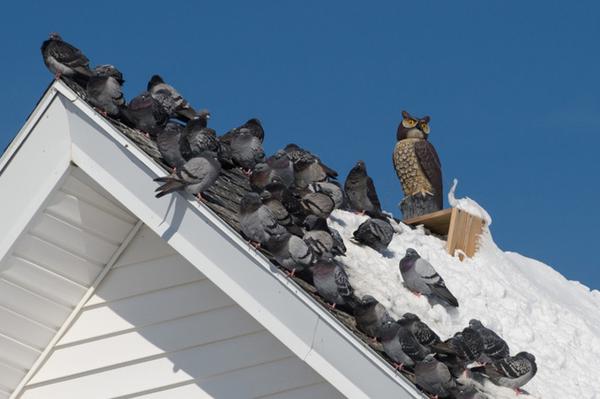
by Pigeon Patrol | Sep 11, 2023 | 4-S Gel Bird repellent, Animal Deterrent Products, Pigeon Control, Pigeon Droppings, Pigeon Patrol's Services, Pigeon Predators, Pigeon Spikes
A team of scientists and conservationists has rediscovered the elusive black-naped pheasant-pigeon, a large, ground-dwelling pigeon that only lives on Fergusson Island, a rugged island in the D’Entrecasteaux Archipelago off eastern Papua New Guinea. Like other pheasant-pigeons, the black-naped pheasant-pigeon has a broad and laterally compressed tail, which along with its size, makes it closely resemble a pheasant. The photographs and video are the first time the long-lost bird has been documented by scientists since 1882, when it was first described. Ornithologists know very little about the species but believe that the population on Fergusson is very small and decreasing.
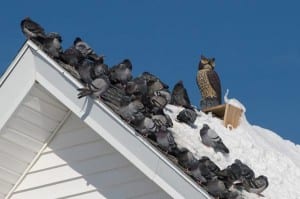
The research team photographed the pheasant-pigeon with a remote camera trap at the end of a month-long search of Fergusson.
“When we collected the camera traps, I figured there was less than a one percent chance of getting a photo of the black-naped pheasant-pigeon,” said Jordan Boersma, postdoctoral researcher at Cornell Lab of Ornithology and co-leader of the expedition team. “Then as I was scrolling through the photos, I was stunned by this photo of this bird walking right past our camera.”
The expedition team–which included local Papua New Guineans working with Papua New Guinea National Museum, Cornell Lab of Ornithology and American Bird Conservancy–arrived on Fergusson in early September 2022. They spent a month traveling around the island, interviewing local community members to identify locations to set up camera traps in hopes of finding the pheasant-pigeon. The steep, mountainous terrain on Fergusson Island made searching for the bird extremely challenging.
“It wasn’t until we reached villages on the western slope of Mt. Kilkerran that we started meeting hunters who had seen and heard the pheasant-pigeon,” said Jason Gregg, conservation biologist and a co-leader of the expedition team. “We became more confident about the local name of the bird, which is ‘Auwo,’ and felt like we were getting closer to the core habitat of where the black-naped pheasant-pigeon lives.”
The expedition was the first-ever camera trapping study conducted on Fergusson Island. The team placed 12 camera traps on the slopes of Mt. Kilkerran, Fergusson’s highest mountain, and deployed an additional eight cameras in locations where local hunters had reported seeing the pheasant-pigeon in the past.
“When we finally found the black-naped pheasant-pigeon, it was during the final hours of the expedition,” said Doka Nason, the member of the team who set up the camera trap that eventually photographed the lost bird. “When I saw the photos, I was incredibly excited.”
A local hunter named Augustin Gregory in the village of Duda Ununa west of Mt. Kilkerran provided a breakthrough lead on where to find the bird. Gregory reported seeing the pheasant-pigeon on multiple occasions in an area with steep ridges and valleys and described hearing the bird’s distinctive calls, which is similar to other species of pheasant-pigeons.
Following Gregory’s advice, the team set up cameras in an area of dense forest. A camera placed on a ridge at 3,200 feet (1000 meters) near the Kwama River above Duda Ununa eventually captured the black-naped pheasant-pigeon walking on the forest floor two days before the team was scheduled to leave the island.
Several members of the team have attempted to find the black-naped pheasant pigeon before. A two-week survey in 2019 by Boersma, Gregg and Nason didn’t find any traces of the bird, though it did gather reports from local hunters of a bird that could have been the pheasant-pigeon. The results from that survey helped to determine locations for the team to search in 2022.
“The communities were very excited when they saw the survey results, because many people hadn’t seen or heard of the bird until we began our project and got the camera trap photos,” said Serena Ketaloya, a conservationist from Milne Bay, Papua New Guinea. “They are now looking forward to working with us to try to protect the pheasant-pigeon.”
The team’s findings suggest that the pheasant-pigeon is likely to be extremely rare. The rugged and inaccessible forest where they rediscovered the species could be the last stronghold for the black-naped pheasant-pigeon on Fegusson.
The expedition was supported by American Bird Conservancy and the Search for Lost Birds, a collaboration between BirdLife International, American Bird Conservancy and Re:wild. The Search for Lost Birds identified the pheasant-pigeon for an expedition after a global review revealed it was one of a few bird species that have been lost to science for more than a century.
The full expedition team consisted of Jason Gregg; Jordan Boersma; Doka Nason of Porotona village; Serena Ketaloya of Porotona village; Elimo Malesa of Basima village; Bulisa Iova from Papua New Guinea National Museum; Cosmo Le Breton, University of Oxford; and John C. Mittermeier from American Bird Conservancy. The expedition was funded by a grant from Cosmo Le Breton to American Bird Conservancy and the Search for Lost Birds.
Source
Pigeon Patrol Products & Services is the leading manufacturer and distributor or bird deterrent (control) products in Canada. Pigeon Patrol products have solved pest bird problems in industrial, commercial, and residential settings since 2000, by using safe and humane bird
deterrents with only bird and animal friendly solutions. At Pigeon Patrol, we manufacture and offer a variety of bird deterrents, ranging from Ultra-flex Bird Spikes with UV protection, Bird Netting, 4-S Bird Gel and the best Ultrasonic and audible sound devices on the market today.
Voted Best Canadian wholesaler for Bird Deterrent products ten years in a row.
Contact us at 1 877-4-NO-BIRD,(604) 585-9279 or visit our website at www.pigeonpatrol.ca
Pigeon/Pigeon Patrol / Pigeons Roosing / Vancouver Pigeon Control / Bird Spikes / Bird Control / Bird Deterrent / PIgeon Deterrent / Surrey Pigeon Control / Pest / Seagull deterrent / Vancouver Pigeon Blog / Birds Inside Home / Pigeons in the cities / Ice Pigeons / What to do about pigeons / sparrows, Damage by Sparrows, How to Keep Raccoons Away, Why Are Raccoons Considered Pests / De-fence / Pigeon Nesting / Bird Droppings / Pigeon Dropping / woodpecker control / Professional Bird Control Company / Keep The Birds Away / Birds/rats/seagull/pigeon/woodpecker/dove/sparrow/pidgeon control/pidgeon problem/pidgeon control/flying rats/pigeon problems/ bird netting/bird gel/bird spray/bird nails/bird guard
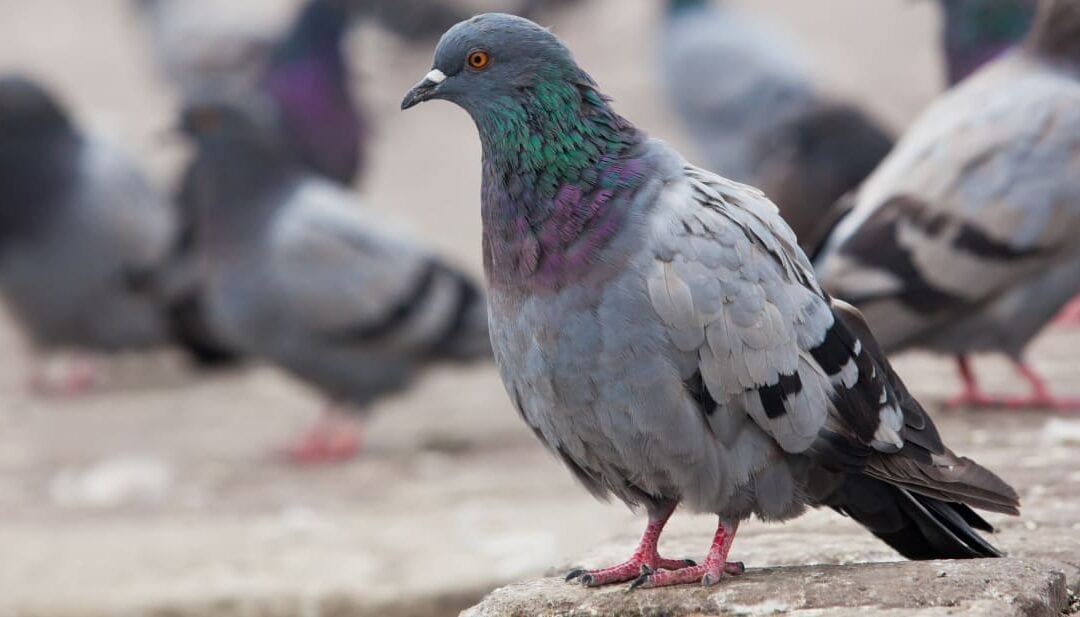
by Pigeon Patrol | Sep 7, 2023 | Bird Spike, Pigeon Control, Pigeon Droppings, Pigeon Patrol's Services, Pigeon Predators, Pigeon Spikes, Pigeons
Nature-loving homeowners like to put out feeders and plant certain flowers and shrubs, to lure birds into their backyards. That’s because birds not only lend more vigor and melody to the life of a garden, but they are also responsible for pollination and pest control.
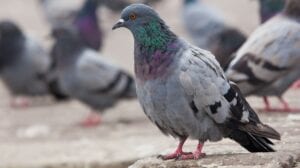
Indeed, birds-caping – or designing your garden to entice local birds – has become increasingly popular among home gardeners these days.
But not every gardener wants birds sauntering onto their garden plots. Pigeons will devour entire heads of cabbage in the afternoon. Crows destroy corn crops by the acre in the countryside, and bluejays will loot your berry bushes almost completely bare of fruit.
The Right Way to Keep Birds Out of Your Vegetable Garden
Still, the wise gardener understands that birds perform an important function in the ecosystem. We recognize why we should ensure that avian populations don’t dwindle any faster than they are dwindling now.
So, below are seven ways to protect your backyard harvests without harming unwanted birds.
1. Scarecrows
Scarecrows, of course, are an obvious solution against birds. But if your makeshift sentry has been posted in the same spot for an extended period now, then birds will have already concluded that he’s harmless.
You need to move your scarecrow’s post a few times around each week. You have to change his clothes, too, to convince the birds that he’s not just a stationary defense tactic, but an actual, mobile threat.
Some gardeners use reflective objects such as old compact discs to keep local birds away. You should also move and rearrange those frequently. Birds catch on surprisingly quickly despite the connotations of the term “bird-brained.”
2. Butterfly Netting
Barriers are among the most effective ways to deter birds from your garden. Butterfly netting protects crops from birds while allowing smaller beneficial insects access to your crops to ensure pollination.
Experts suggest that you keep your netting pulled taught, and use netting with holes smaller than one centimeter to avoid injuring birds.
Be sure you invest in high-quality, UV-resistant netting materials. They may be a bit more expensive, but higher-quality netting will last a lifetime. Cheaper netting tends to fray and deteriorate, becoming a potentially dangerous snag for birds.
3. Chicken Wire
Charles Barnard, an English ironmonger, invented chicken wire in 1844 as a cheap and easy way to keep small animals and poultry penned in one area. You can use the same principle and material to keep birds out of your vegetable plots.
Pin chicken wire to the ground to protect newly-planted seeds or freshly-sown tubers from birds or even chickens scratching and pecking at the soil. As your seedlings start to grow, you can lift the wire off the ground on stakes for additional protection.
4. Garden Fleece
Gardeners often install garden fleece to protect crops from frost in cold weather months, but you can also use it year-round to shield your crops from birds. Drape the fine, white material over your vegetable patch to keep the birds in your neighborhood from harvesting your greens.
Weigh the sides down with rocks or pegs. You can always roll back the fleece when harvest season comes around.
5. Protective Plants
Pigeons, be they wood or rock doves, are rapacious devourers of vegetables in the cabbage family. They are quite persistent and will return to your patch every day until your entire crop is gone. If you don’t have a devoted terrier to shoo them away, you need another plan.
If you are simply not a fan of netting and cages, you can try confusing pigeons by surrounding your cabbage patch with annuals. Plant a dense barrier of calendulas, nemophila, cornflowers, field poppies, and other shorter-growing wildflowers around your plot.
The look is pleasing, inconspicuous and, as a deterrent against pigeons, the strategy does work. Pigeons do not like to wade through lush flowers. They are naturally wary of what may lurk underneath.
6. Toy Predators
Decoy predators – such as toy owls, falcons, or other birds of prey – can help deter birds from ravaging your garden’s harvests. However, like the scarecrow, if these stationary decoys are not relocated often, birds will soon learn that they are harmless.
Moving your toy owls and decoy predators around in the garden will keep neighborhood birds from swooping in to consume your harvest. Decoys that move or make a sound are even better at deterring birds.
7. Stick Barriers
Push sticks and small twigs into the ground around your vegetable patch to create a small forest of sticks. Birds will likely notice the menacing sticks barring their way instead of the vegetables you want to protect.
Source
Pigeon Patrol Products & Services is the leading manufacturer and distributor or bird deterrent (control) products in Canada. Pigeon Patrol products have solved pest bird problems in industrial, commercial, and residential settings since 2000, by using safe and humane bird
deterrents with only bird and animal friendly solutions. At Pigeon Patrol, we manufacture and offer a variety of bird deterrents, ranging from Ultra-flex Bird Spikes with UV protection, Bird Netting, 4-S Bird Gel and the best Ultrasonic and audible sound devices on the market today.
Voted Best Canadian wholesaler for Bird Deterrent products ten years in a row.
Contact us at 1 877-4-NO-BIRD,(604) 585-9279 or visit our website at www.pigeonpatrol.ca
Pigeon/Pigeon Patrol / Pigeons Roosing / Vancouver Pigeon Control / Bird Spikes / Bird Control / Bird Deterrent / PIgeon Deterrent / Surrey Pigeon Control / Pest / Seagull deterrent / Vancouver Pigeon Blog / Birds Inside Home / Pigeons in the cities / Ice Pigeons / What to do about pigeons / sparrows, Damage by Sparrows, How to Keep Raccoons Away, Why Are Raccoons Considered Pests / De-fence / Pigeon Nesting / Bird Droppings / Pigeon Dropping / woodpecker control / Professional Bird Control Company / Keep The Birds Away / Birds/rats/seagull/pigeon/woodpecker/dove/sparrow/pidgeon control/pidgeon problem/pidgeon control/flying rats/pigeon problems/ bird netting/bird gel/bird spray/bird nails/bird guard
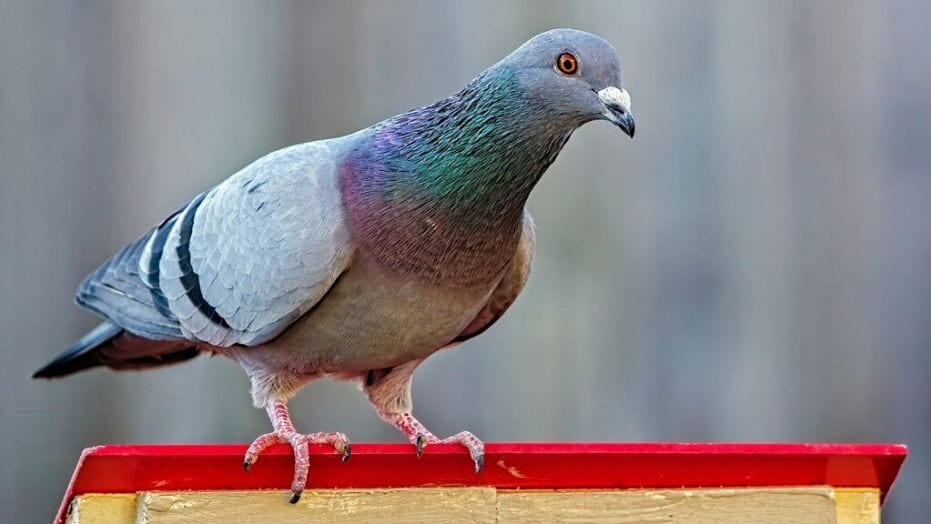
by Pigeon Patrol | Sep 7, 2023 | history of pigeons, MBCA, pet bird, Pigeon Control, Pigeon Droppings, Pigeon Patrol's Services, Pigeon Predators
We all are well aware of the fact that how films, web series, and TV serials have romanticized the idea of symbolizing birds such as pigeons and sparrows as a symbol of love and peace. However, the truth is completely different from what we see on the screen. If these birds become unpaid tenants of your little balcony, you are surely going to encounter the nuisance they create. Thus, many homeowners opt for Sparrow Netting or Pigeon Netting to keep them at bay.
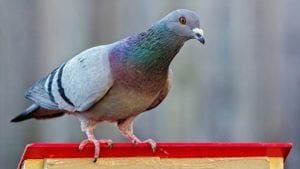
In addition, during the summer season, it becomes extremely important to place pigeon netting for balconies to get rid of all the chaos they bring with them. You may wonder how these little pests can cause substantial damage to your family’s health and also to your property. Well, they can and that is the reason why various residential and industrial spaces in rural and urban areas rely on anti bird netting services.
With that being said, this write-up is specially dedicated to discussing why anti bird netting becomes crucial during the Indian summer season. The comprehensive guide will also shed some light on the key features of HiCare’s bird netting in Pune, Mumbai, and other Indian cities.
Birds are Dirty Beings
Yes, believe it or not, they are. And, if you don’t you can check out the surface of a car parking in the open space or benches of the park. Now, just imagine that a bunch of birds are enjoying the shade under your balcony. Once they leave, you are likely to spot their droppings. It is a treat for all the balcony gardeners as a large amount of their dropping can harm vegetation.
Birds Can Cause Illness
Diseases such as pigeon ornithosis, encephalitis, and salmonella food poisoning have all been linked to pigeons. However, determining the true incidence of illness transmission from pigeons to humans is problematic. Disease outbreaks that may be traced back to pigeon flocks are uncommon. Hence, another strong reason for subscribing to bird netting in Pune, Mumbai, or any other metropolitan city of India.
Pigeon excrement contains the causal agent of histoplasmosis, a systemic fungal illness that affects the human respiratory tract if allowed to accumulate for several years. Histoplasmosis can be lethal in extreme cases. Pigeons’ external parasites include a variety of mites, fleas, ticks, and bugs.
More than anything else, pigeons can be a threat to human safety. Thus, the elimination of feeding, watering, roosting, and nesting sites is important during summer, winter, or any Indian season. As birds pose serious concerns to gardeners and property owners, bird netting services can act as a barrier to letting them in your sweet home. With that being said, here are four benefits of Bird Netting installation in summer. Scroll down to take a brief look at each!
Top 4 Benefits of Bird Netting
- Long-Term Protection
- Durable and Sturdy
- Cost-Effective
- Simple to Use
- Disease Prevention
- Environmentally Friendly
- Low Maintenance
1. Long-Term Protection
During summer, birds often come in their numbers to attack your balcony causing significant damage to the surroundings. To counter this, the net is an effective way to offer the right protection to complete your space from bird damage.
2. Durable and Sturdy
Nets are made of the strongest, highest-quality materials, come in a variety of shapes and sizes, and are UV-stabilized. Some nets have been estimated to last up to several years. Anti-bird netting pays off in terms of durability, which is important in any worthwhile investment. The setup is basic and straightforward.
3. Cost-Effective
Nets are made of the strongest, highest-quality materials, come in a variety of shapes and sizes, and are UV-stabilized. Some nets have been estimated to last up to several years. Anti-bird netting pays off in terms of durability, which is essential in any worthwhile investment.
4. Simple to Use
The netting is exceptionally simple to use and easy to install. The process is hassle-free and professionals can do it within a given timeframe. Once installed properly, it does not require any external force to come into action.
Many reasons and benefits can lure more homeowners to install pigeon netting for balconies. However, finding the best professionals that give Bird Netting Services in Mumbai or any Indian city could be a bit difficult. On the flip side, it is not impossible either. If your browser history is filled with the query – Bird Netting Mumbai, HiCare has a solution for you.
5. Disease Prevention
Bird droppings can contain harmful pathogens and bacteria. By keeping birds away from areas where people live and work, bird netting reduces the risk of diseases transmitted through contact with bird droppings. This is especially crucial in urban environments.
6. Environmentally Friendly
Bird netting is considered an environmentally friendly bird control method because it does not harm the birds. Instead, it provides a physical barrier that discourages birds from accessing certain areas without causing them harm. This makes it a humane and sustainable solution.
7. Low Maintenance
Once bird netting is properly installed, it requires minimal maintenance. Routine inspections to check for damage and repairs as needed are typically the only maintenance tasks required. This saves time and effort compared to other bird control methods.
Source
Pigeon Patrol Products & Services is the leading manufacturer and distributor or bird deterrent (control) products in Canada. Pigeon Patrol products have solved pest bird problems in industrial, commercial, and residential settings since 2000, by using safe and humane bird
deterrents with only bird and animal friendly solutions. At Pigeon Patrol, we manufacture and offer a variety of bird deterrents, ranging from Ultra-flex Bird Spikes with UV protection, Bird Netting, 4-S Bird Gel and the best Ultrasonic and audible sound devices on the market today.
Voted Best Canadian wholesaler for Bird Deterrent products ten years in a row.
Contact us at 1 877-4-NO-BIRD,(604) 585-9279 or visit our website at www.pigeonpatrol.ca
Pigeon/Pigeon Patrol / Pigeons Roosing / Vancouver Pigeon Control / Bird Spikes / Bird Control / Bird Deterrent / PIgeon Deterrent / Surrey Pigeon Control / Pest / Seagull deterrent / Vancouver Pigeon Blog / Birds Inside Home / Pigeons in the cities / Ice Pigeons / What to do about pigeons / sparrows, Damage by Sparrows, How to Keep Raccoons Away, Why Are Raccoons Considered Pests / De-fence / Pigeon Nesting / Bird Droppings / Pigeon Dropping / woodpecker control / Professional Bird Control Company / Keep The Birds Away / Birds/rats/seagull/pigeon/woodpecker/dove/sparrow/pidgeon control/pidgeon problem/pidgeon control/flying rats/pigeon problems/ bird netting/bird gel/bird spray/bird nails/bird guard

by Pigeon Patrol | Jul 26, 2023 | history of pigeons, MBCA, pet bird, Pigeon Control, Pigeon Droppings, Pigeon Patrol's Services, Pigeon Predators
Do you have a problem with pigeons in your home? Not only can this be frustrating, but pigeons can also carry germs that can have a negative impact on your health. This is why it is important to seek expert pigeon removal. With that in mind, in this blog post, we are going to reveal everything you need to know about pigeon removal, including some of the steps you can take to keep pigeons away from your home.

Why pigeons are dangerous
You may have heard that pigeons carry diseases. This information is true. In fact, pigeons spread an alarming number of diseases, as they carry more than 60 varieties of pathogens. Diseases are transmitted via pigeon droppings. Of course, you can make sure that you never pick up or touch pigeon droppings. Nevertheless, it is a little bit more complicated than that. When pigeon droppings that are infected with viruses or bacteria are left on windowsills or pavements, for example, they will start to dry out. When this happens, the droppings then turn into a powder. The powder is either kicked into the air or blown about, which causes it to be inhaled by people without them knowing. When this powder is inhaled in this manner, this is how diseases can be spread to humans.
What are some of the common pathogens that pigeons can transmit to humans?
There are a number of different pathogens that humans can transmit to humans, so let’s take a look at them in further detail:
- Salmonellosis – This is a disease that you are probably more familiar with in terms of food poisoning. This disease when the infected droppings of a pigeon turn into dust, as mentioned earlier, and ends up finding its way to food preparation surfaces and food.
- Candidiasis – This disease is a respiratory condition that happens as a consequence of the years or fungus that is found within pigeon droppings. The areas that are impacted by this type of disease include the respiratory system, mouth, and skin, as well as the intestines and also the urogenital tract, especially in females.
- Histoplasmosis – This is a respiratory disease that can happen as a consequence of the fungus that grows in pigeon droppings. This disease can be fatal.
- St. Louis encephalitis – This is a form of the disease that mosquitoes spread once they have fed on a pigeon that carries this disease. This results in inflammation of the nervous system, which can be a big concern no matter how old you are. Nevertheless, it can be especially serious and sometimes even fatal in those who are 60-years-old or older. Symptoms include fever, headache, and drowsiness.
- E.coli – Last but not least, there is e.coli, which happens when bird droppings land in a supply of food or water, after which they are consumed by humans. By washing food before eating, you should be able to avoid this. Symptoms include the likes of cramps, fever, and nausea.
It is also worth pointing out that pigeons carry the West Nile virus, as well as carrying fleas and mites, all of which can result in discomfort and a number of severe medical problems for humans.
How to keep pigeons away from your home
There are several different steps that you can take to try and keep pigeons away from your property. One of the things that you can do is make the roosting areas as unappealing as possible. Here are some of the best opinions here:
- Don’t feed them – This may sound obvious, but it is important to make sure that you do not feed the pigeons. As is the case with the majority of animals, if you feed them, they are only going to keep coming back. Plus, the food may attract even more pigeons and potentially other animals as well!
- Install coping covers to window ledges and sills – If you do not have any flat surfaces for nests to be built and balanced on, the pigeons are probably going to move elsewhere and find a different home.
- Tie a string across the roosting area – Strings that are tied approximately one-inch
- Install anti-roosting spike stripes – Select strategical sports for the installation of anti-roosting spike strips. This includes the likes of window ledges and sills.
It is also a wise idea to inspect the outside of your home and to make sure there are no entry points for pigeons. Pay special attention to your attic and eaves. If any openings are present, you should seal them. You can start by sealing the attic should there by any openings that are large enough for a pigeon to get through them. You can either place a metal wire mesh or you could seal the openings completely.
Next, you should cap your chimney if your home has one. Using a metal wire cage to cap your chimney is a wise idea because pigeons are well known for creating nests that can block this area of your home. A bird could die through getting trapped inside of the chimney as well, so blocking off the chimney is better all around!
In addition to this, you should use netting or mesh surrounding the nesting areas. This is advisable especially for those that have air conditioning units in their home. This is because pigeons love to create their nests on trays underneath the unit.
Of course, you can also hire professionals to make sure that there are some strategies in place so that pigeons are deterred from your property.
Source
Pigeon Patrol Products & Services is the leading manufacturer and distributor or bird deterrent (control) products in Canada. Pigeon Patrol products have solved pest bird problems in industrial, commercial, and residential settings since 2000, by using safe and humane bird
deterrents with only bird and animal friendly solutions. At Pigeon Patrol, we manufacture and offer a variety of bird deterrents, ranging from Ultra-flex Bird Spikes with UV protection, Bird Netting, 4-S Bird Gel and the best Ultrasonic and audible sound devices on the market today.
Voted Best Canadian wholesaler for Bird Deterrent products ten years in a row.
Contact us at 1 877-4-NO-BIRD,(604) 585-9279 or visit our website at www.pigeonpatrol.ca
Pigeon/Pigeon Patrol / Pigeons Roosing / Vancouver Pigeon Control / Bird Spikes / Bird Control / Bird Deterrent / PIgeon Deterrent / Surrey Pigeon Control / Pest / Seagull deterrent / Vancouver Pigeon Blog / Birds Inside Home / Pigeons in the cities / Ice Pigeons / What to do about pigeons / sparrows, Damage by Sparrows, How to Keep Raccoons Away, Why Are Raccoons Considered Pests / De-fence / Pigeon Nesting / Bird Droppings / Pigeon Dropping / woodpecker control / Professional Bird Control Company / Keep The Birds Away / Birds/rats/seagull/pigeon/woodpecker/dove/sparrow/pidgeon control/pidgeon problem/pidgeon control/flying rats/pigeon problems/ bird netting/bird gel/bird spray/bird nails/bird guard
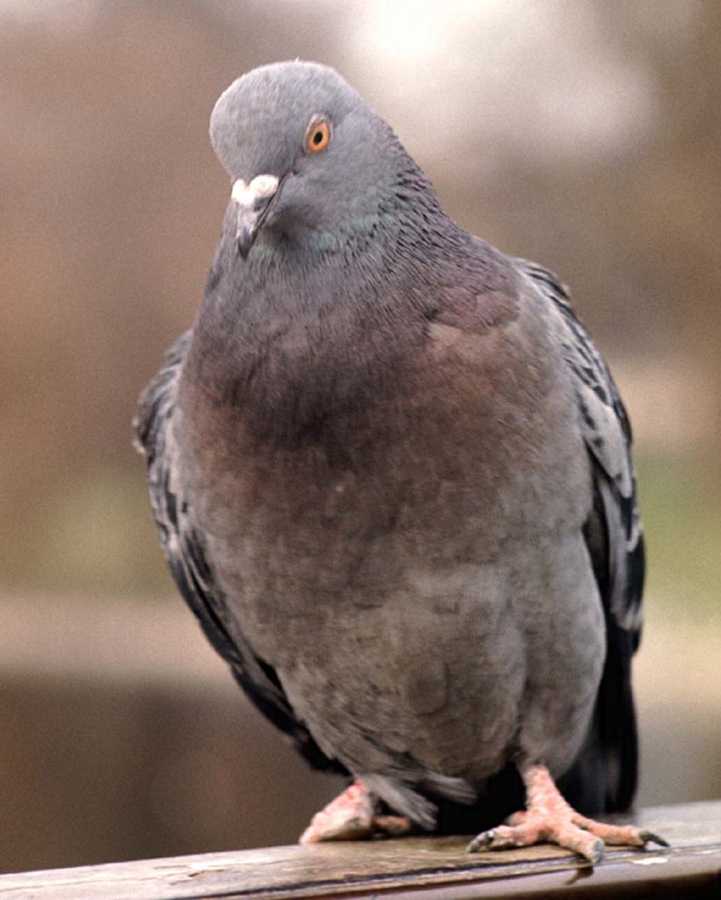
by Pigeon Patrol | Jul 20, 2023 | Bird Spike, Pigeon Droppings, Pigeon Patrol's Services, Pigeon Predators, Pigeon Spikes, Pigeons, Pigeons in the News
Chickens bob their heads while walking. So do cranes, magpies and quails. In fact, head bobbing is a unique feature in birds and occurs in at least 8 of the 27 families of birds.
There are a few theories why some birds bob their heads when they walk:
- Assists with balance
- Provides depth perception
- Sharpens their vision
However, most studies suggest that birds in motion bob their heads to stabilize their visual surroundings. In comparison, we rely more on our eye movements, not our head movements, to catch and hold images while in motion.
Picture a pigeon on a moving treadmill. What do you think would happen as the pigeon walks with the speed of the treadmill and its environment remains relatively the same? Dr. Barrie J Frost (1978) did this experiment and the pigeon’s head did not bob.
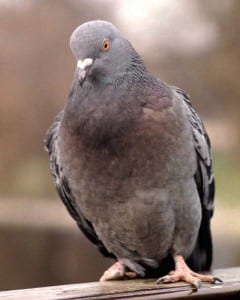
Dr. Mark Friedman (1975) also conducted a series of experiments to test the head bobbing actions of birds, using doves. His research demonstrated that the head movement is controlled more by visual stimulation than movement of the body.
Scientists continue to research head bobbing in birds. For example, scientists are currently investigating question such as “Why do some birds exhibit head bobbing, while other do not?” For more information on this topic see the related Web sites section.
Source
Pigeon Patrol Products & Services is the leading manufacturer and distributor or bird deterrent (control) products in Canada. Pigeon Patrol products have solved pest bird problems in industrial, commercial, and residential settings since 2000, by using safe and humane bird
deterrents with only bird and animal friendly solutions. At Pigeon Patrol, we manufacture and offer a variety of bird deterrents, ranging from Ultra-flex Bird Spikes with UV protection, Bird Netting, 4-S Bird Gel and the best Ultrasonic and audible sound devices on the market today.
Voted Best Canadian wholesaler for Bird Deterrent products ten years in a row.
Contact us at 1 877-4-NO-BIRD,(604) 585-9279 or visit our website at www.pigeonpatrol.ca
Pigeon/Pigeon Patrol / Pigeons Roosing / Vancouver Pigeon Control / Bird Spikes / Bird Control / Bird Deterrent / PIgeon Deterrent / Surrey Pigeon Control / Pest / Seagull deterrent / Vancouver Pigeon Blog / Birds Inside Home / Pigeons in the cities / Ice Pigeons / What to do about pigeons / sparrows, Damage by Sparrows, How to Keep Raccoons Away, Why Are Raccoons Considered Pests / De-fence / Pigeon Nesting / Bird Droppings / Pigeon Dropping / woodpecker control / Professional Bird Control Company / Keep The Birds Away / Birds/rats/seagull/pigeon/woodpecker/dove/sparrow/pidgeon control/pidgeon problem/pidgeon control/flying rats/pigeon problems/ bird netting/bird gel/bird spray/bird nails/bird guard

